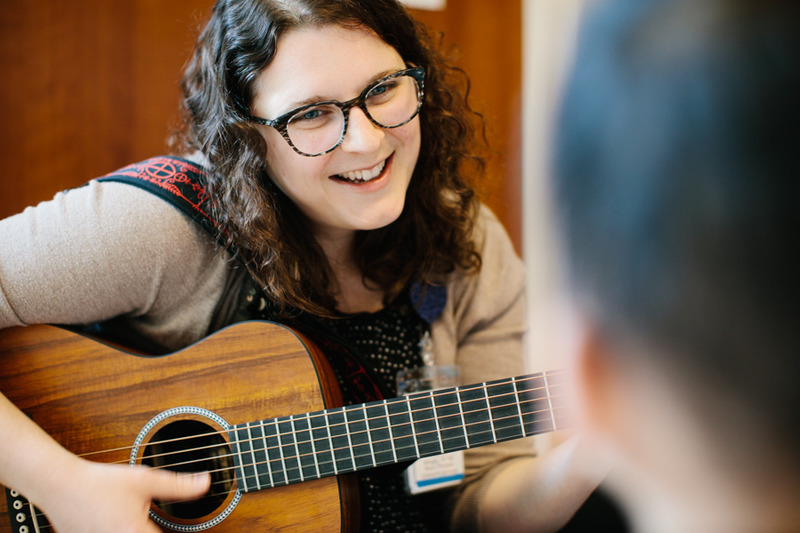
Where do you work and who are your clients?
I work at Lurie Children’s – my clients are hospitalized children and their families. I primarily serve the hospital’s NICU and PICU, but do work with inpatients on every unit.
What is your favorite part of your job?
I enjoy the variety, unpredictability, and the ability to use my creativity and experience to be helpful in the moment.
What inspired you to become a music therapist?
I grew up as a caregiver for a disabled parent, so was always on a helping path. Music was one of the things and sources of community that I sought out for myself – I loved playing the flute in band, singing in choir, participating in theater. I chose to double major in music performance and psychology before learning about music therapy. As a psychology major, I had the opportunity to train with a local psychologist to provide in-home assistance for families of kids on the autism spectrum. One of the families I worked for told me that their child participated in music therapy at their school, and suggested I pursue the field. In 2002 I transferred to WIU and never looked back!
What do you do for self-care?
Prioritize uninterrupted time with my own children and partner, go to therapy, pace myself at work, stop using social media, limit the news, read novels, cook, do yoga (sometimes) and be very intentional about the books, television, and movies I choose. I like to listen to current and marginalized voices when I can, but also value levity and humor. Also, I recently switched from a 5-day workweek to four 10-hour workdays and it’s made a big difference to have that extra day at home.
What’s once piece of advice you have for students or new therapists in the field?
Be patient; give things time to unfold. The moment I started to feel respected, understood, and grounded at work is the moment I moved away from “advocating” and allowed the work to speak for itself.
Bravo! Here are some further videos highlighting Elizabeth’s work:
https://www.luriechildrens.org/en/patients-visitors/meet-your-care-team/music-therapists/
https://chicago.cbslocal.com/2015/09/25/music-brings-therapy-to-7-year-old-heart-patient-at-chicago-hospital/
Know someone that should be recognized in our next Member Spotlight? Nominate them here.
